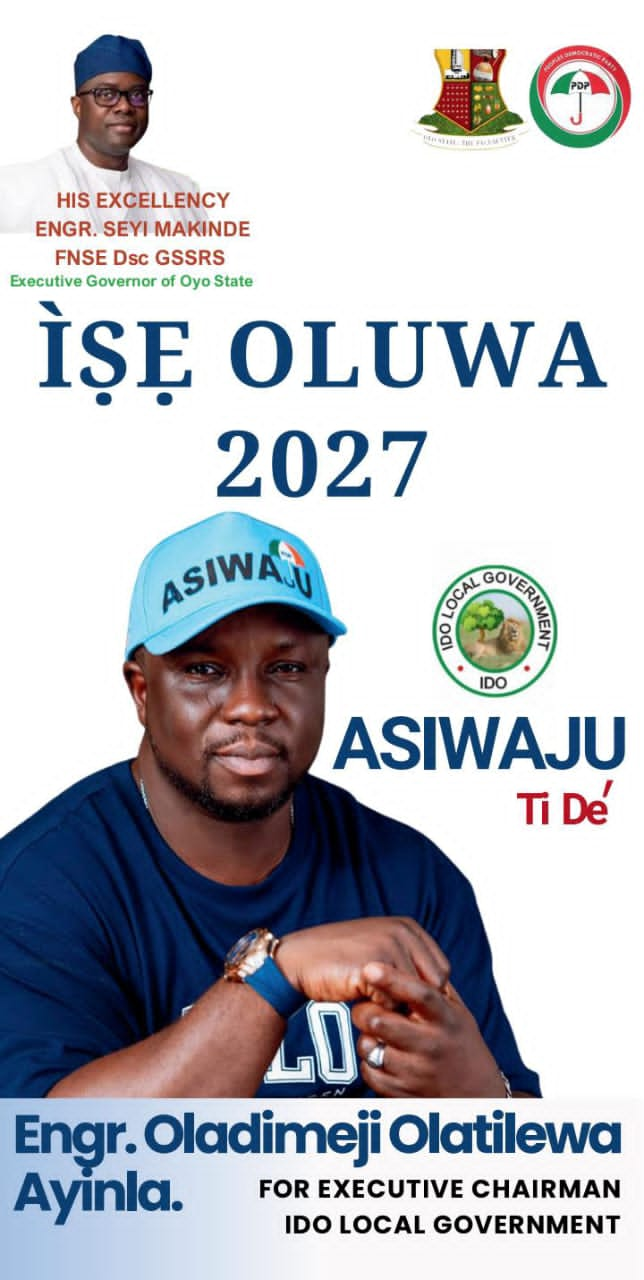Oyo Govt Partners With ICT Firms To Empower 1,000 Students with Essential Tech Skills
As part of proactive efforts aimed at equipping the younger generation with crucial technological skills needed to grapple with the emerging global digital world, the Oyo State Government in a strategic collaboration with three leading Information and Communication Technology firms; CodeGarageAfrica, Zeeh Africa, and 386konsult Limited, successfully concluded its groundbreaking “1000 Lines of Code” initiative.
This initiative, which is targeted at empowering students across the state from both public and private schools, marked a significant step in the Series Makinde led administration towards bridging the digital divide and preparing youths for the future job market.

The grand finale of the 5-Day program, which held at the International Conference Centre, University of Ibadan began with a kickoff on July 15, 2024, to spark a digital revolution across the 11 Local Government Areas of Ibadan as a pilot phase.

At the program, no fewer than 1,000 senior secondary school students drawn from both public and private schools were empowered with essential coding and non-coding tech skills.
on Friday, July 19, 2024.

Addressing newsmen shortly after the program rounded off, the Executive Assistant on Administration and State Focus Person on Human Capital Development, Reverend Idowu Ogedengbe said secondary students from various private and public schools in Oyo State have the opportunity to undergo specialized empowerment training in essential tech skills.
These skills according to Ogedengbe include but are not limited to programming, web development, digital literacy, and cybersecurity, as well as non coding skills.
While expressing appreciation to Governor Seyi Makinde for his pragmatic and visionary leadership in building preparing the ground for future leaders to excel in the emerging and dynamic digital labor market, Ogedengbe noted that the skills acquired by the students would prepare participants ahead of the next phase of their academic pursuit.
Ogedengbe equally disclosed that the program did not only seek to enhance the employability of participants but also foster innovation and entrepreneurship within the state.
“The 1000 Lines of Code Initiative has introduced senior secondary school students in Nigeria to the fundamentals of coding and programming. With the growing importance of digital literacy, this initiative has equipped students with essential skills that will empower them for the future.
“We began the idea in January, followed by a press briefing in May. Technically working together with partners, we selected 10 schools from each of the 11 local government areas in Oyo State. Each school sent 2 teachers and 8 students, starting the program on July 15 and concluding today, July 19.” Rev Ogedengbe said.
Mr. Bayo Akande, The Senior Special Assistant on ICT to the Oyo state governor, also praised Makinde and the ICT partners saying: “This initiative is a monumental step forward. I am thoroughly impressed with the dedication and enthusiasm shown by the students. This program will continue, reaching more students across other local government areas in the state.
“Our vision is to make Oyo State a hub of technological innovation in Nigeria and to equip students for the future. Being able to teach students at a very young age is invaluable. If you look at China, India, and other tech capitals of the world, they succeed because they start at a young age. The likes of Mark Zuckerberg started like this, and we want our students to have similar opportunities. The support from Governor Makinde has been instrumental in making this vision a reality.”
Also Speaking at the event, Mr. Tayo Stephen, Deputy Director of Secondary Schools from the Ministry of Education, expressed his admiration for the initiative. “This program is a testament to our commitment to improving education in Oyo State. The skills these students have gained will not only benefit them personally but will also contribute to the development of our state. We are proud to be part of an initiative that is shaping the future of our young minds.”
David Adeleke, CEO of Zeeh Africa, shared his excitement, stating, “The 1000 Lines of Code initiative is a massive vision, and we’re thrilled to be part of it. We have not only trained 1,000 senior secondary school students but empowered them to dream big, think boldly, and redefine what’s achievable. Just as Mark Zuckerberg started learning to code at a young age and went on to create Facebook, we hope our students will achieve great things.”
He added, “The ‘1000 Lines of Code’ initiative extends beyond classrooms; it’s a catalyst for change that will resonate across communities, industries, and beyond. Through immersive workshops, hands-on mentorship, and access to cutting-edge resources, I’m sure the students did not only learn coding and non-coding tech skills but will also cultivate critical thinking, problem-solving skills, and an entrepreneurial mindset. The feedback from students has been overwhelmingly positive, and many have expressed newfound interests in pursuing tech careers.”
Also speaking, one of the beneficiarie, Sanusi Ikimat from Wesley College Elekuro expressed her appreciation, saying, “This program has opened my eyes to the endless possibilities in the tech world. I am excited to continue learning and applying these skills.”
Victor Segun from UCH Staff School added, “Being part of this initiative has been a transformative experience. I now see a future in technology that I hadn’t considered before.”
The program featured various presentations from students, showcasing their newfound skills. Taiwo Emmanuel from Deeper Life High School presented on Front-End Development Analysis, Chukwu Goodluck from Baptist Secondary School focused on Back-End Development, and Okeayaninneh Michael Osamagbe from UCH Staff School presented on UI/UX design.
Earlier in a closing remark, Rev Ogedengbe emphasized the importance of digital skills in today’s economy and expressed confidence that the collaboration with the ICT firms will yield tangible benefits for the youth, highlighting the state government’s commitment to investing in education and technology, and viewing them as critical pillars for sustainable development.

